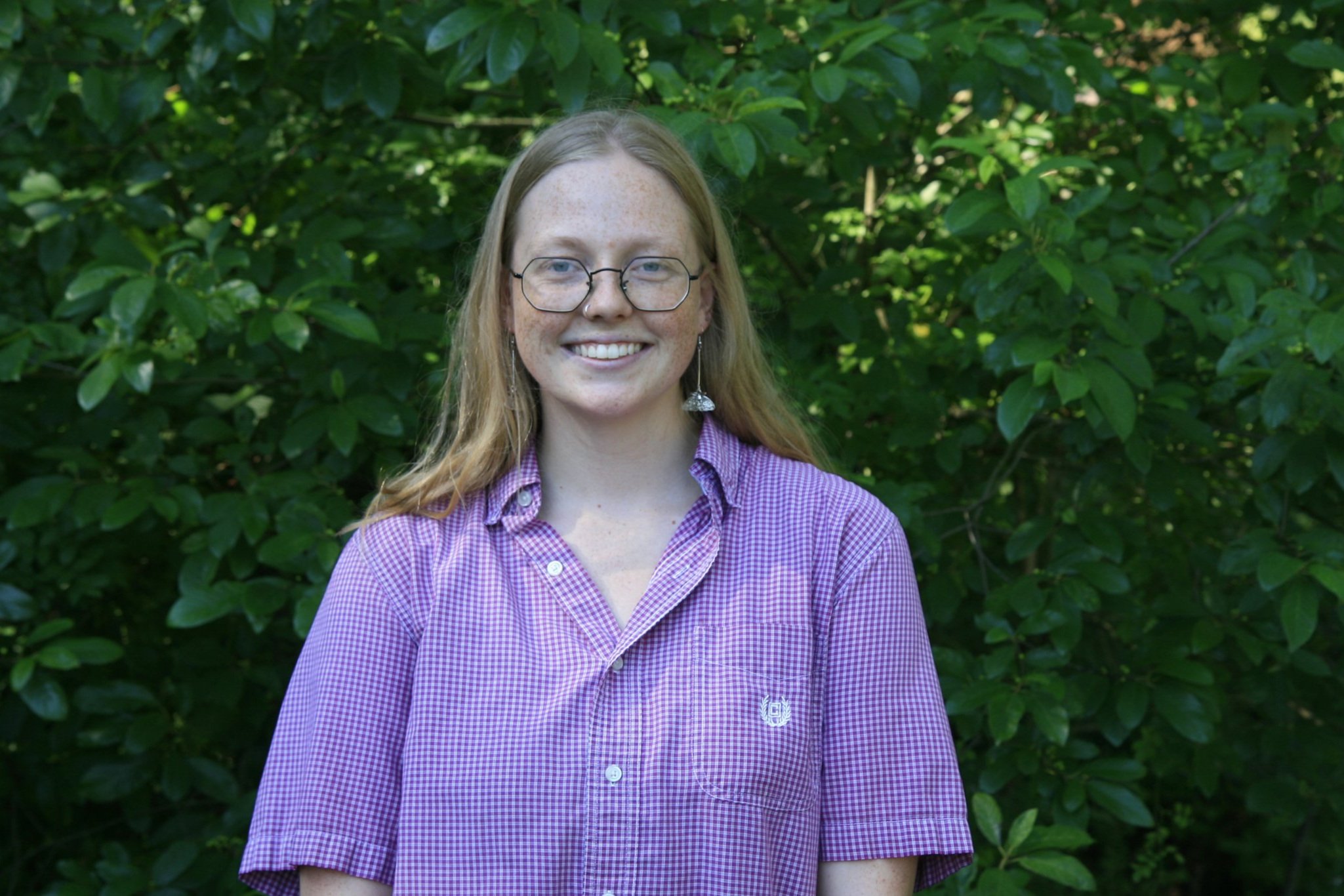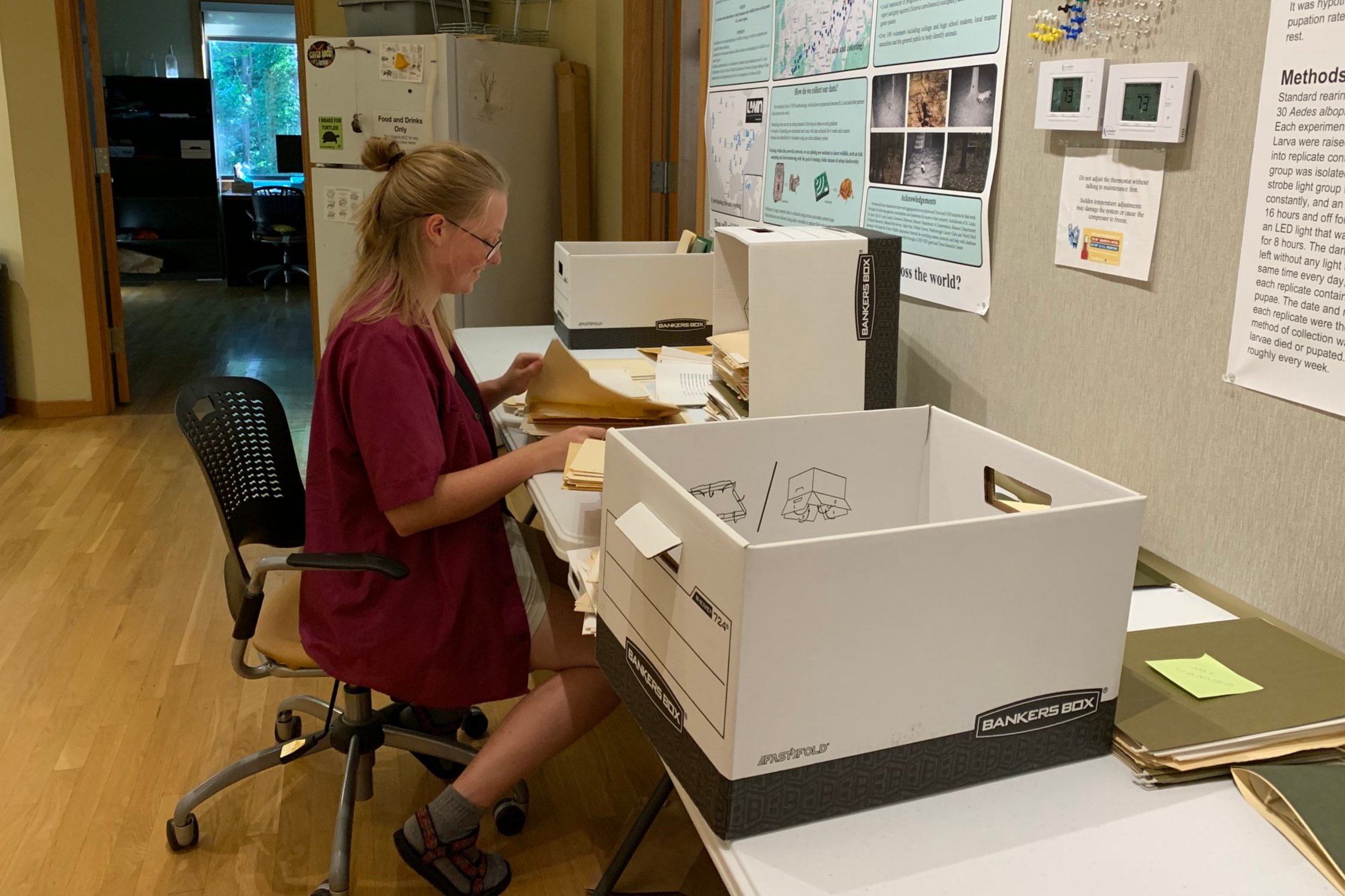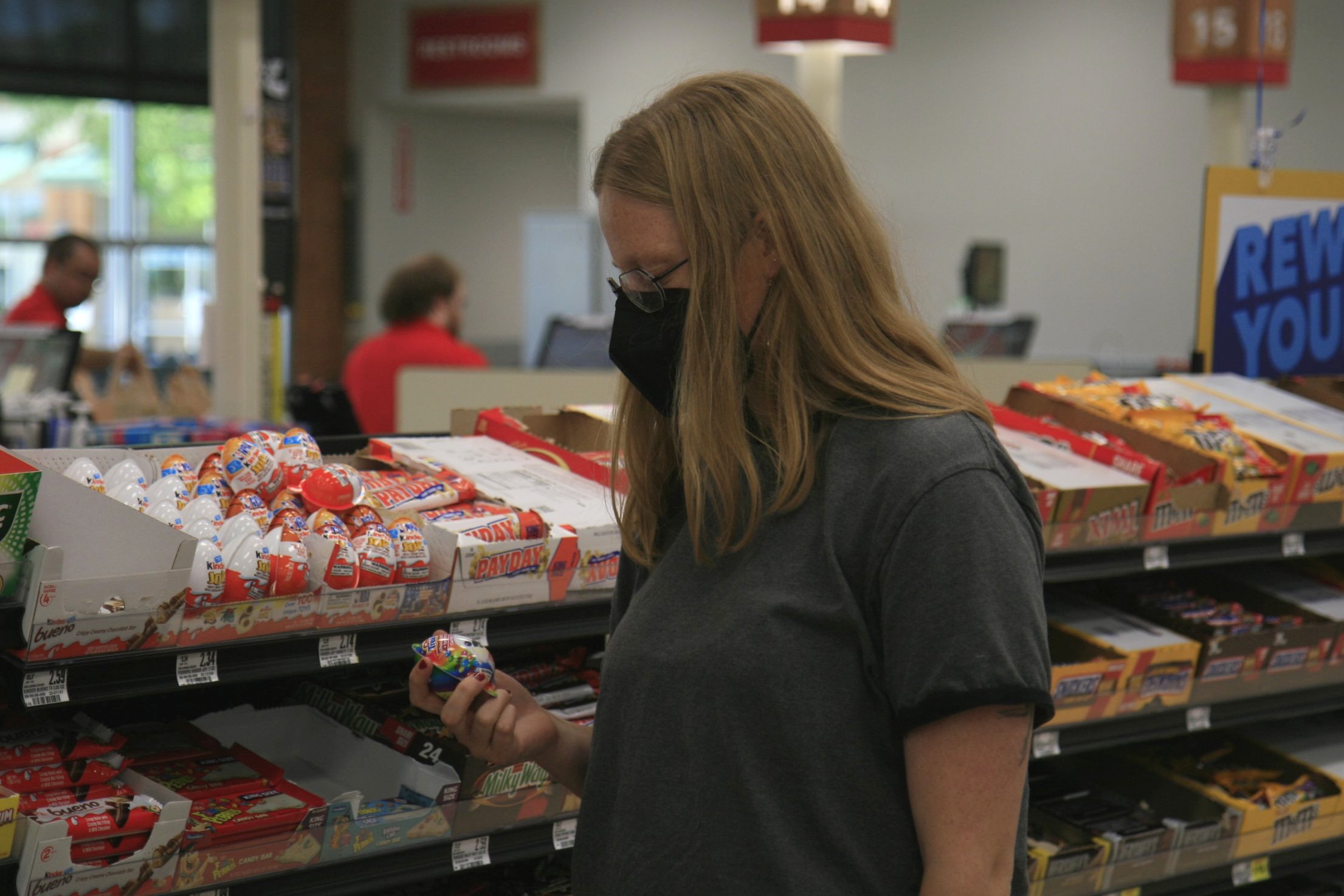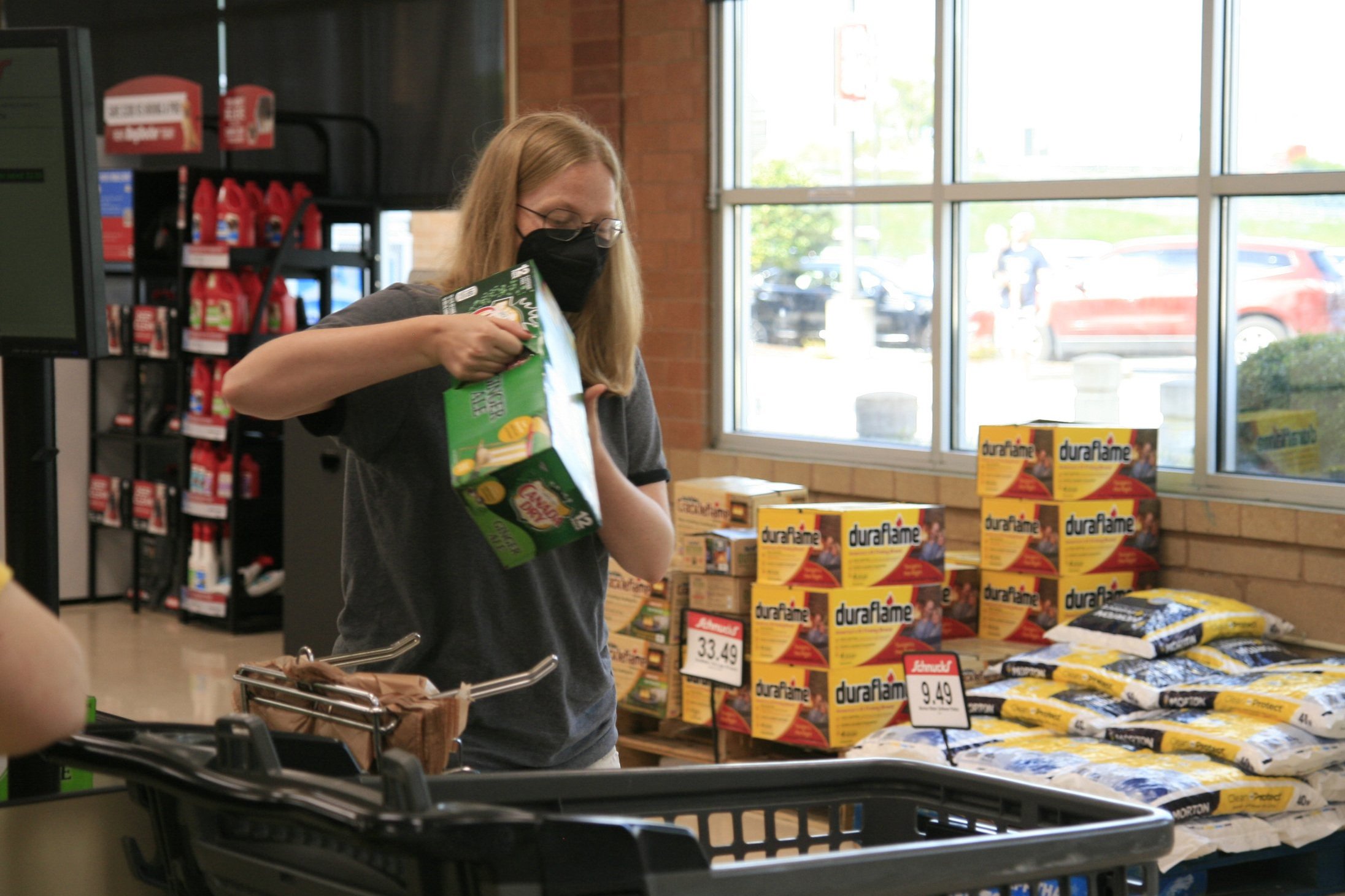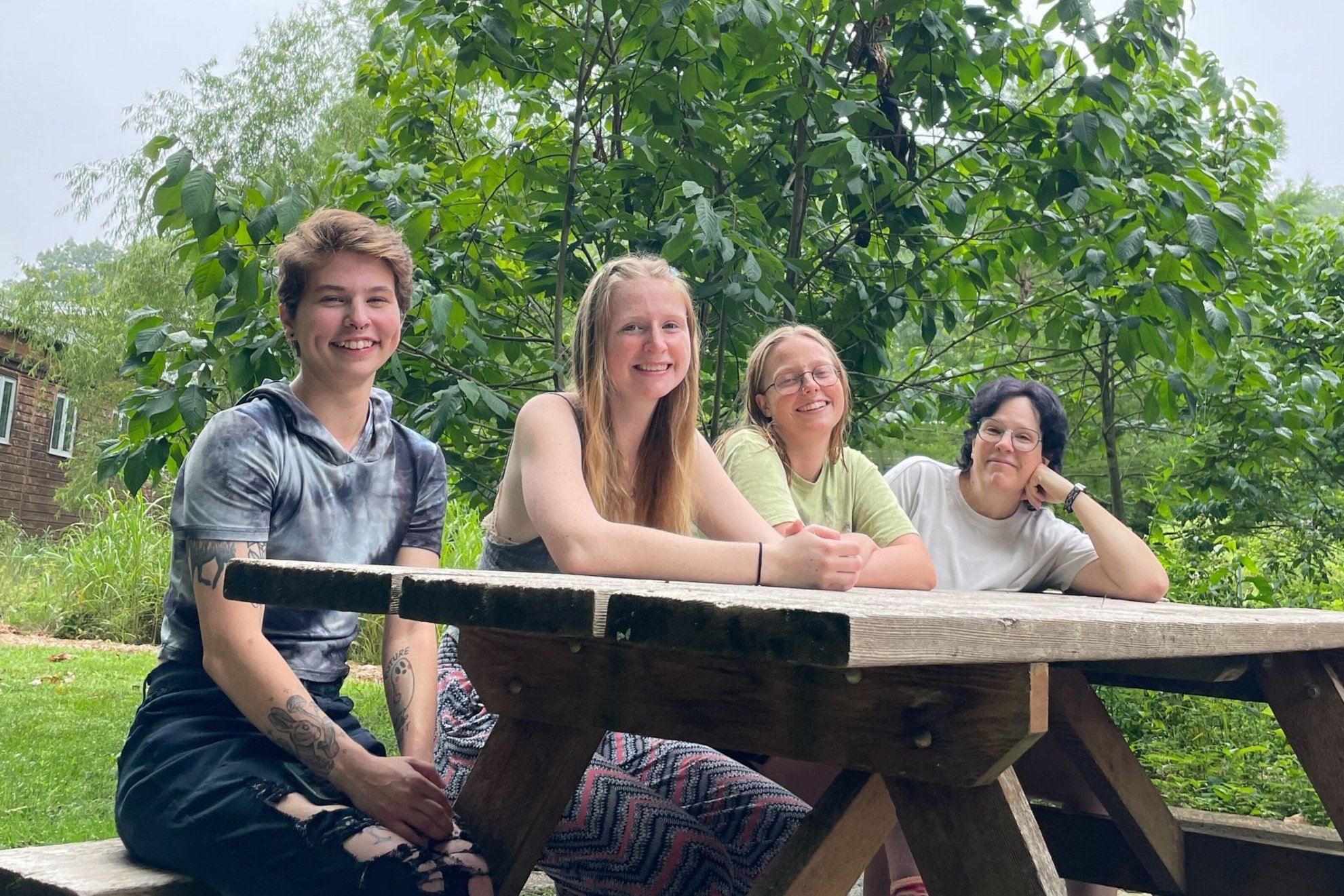Humans of Tyson 2023
Grace O’Connor
Undergraduate Fellow
Team Humans
What brought you to Tyson?
I feel like I just stumbled in. Pretty early on in my college experience, I wasn’t sure what I wanted to do. I was mostly interested in literature, but also kind of liked geology, but was also just trying to find out where cool people hung out in the summer. I had been interested in the humanities fellowship that doesn't exist anymore. Oh my god. Look at that though. Oh.
At this point we realized there was a wasp in the conference room, demonstrating how even the indoor spaces at Tyson are embedded in nature. We quickly relocated to the other side of the table and continued.
I was probably just drawn in by the vibe of the website and the Tyson Conservation Corps events that I had been to. It was clearly a human-centered place. And even though I didn't explicitly see myself doing science, there was a culture that I wanted to be a part of and could contribute to. In 2020, I ended up doing the electromechanical engineering fellowship. I was very surprised I got that one, and then it was also the first COVID year, so no one was able to do much. I came out of that summer glad I tried it, but I didn’t think I would ever have reason to come back. A few years later, I went to a Tyson reunion event for graduating seniors, and saw some people from my cohort. I had fun catching up with people and seeing Susan [Flowers], and Lawton was talking about doing the education fellowship right after her graduation. I still had another semester of school left at that point, but in that moment I was just like, oh, that's what I want to do next summer, right after I graduate.
What might the other teams not realize about what your team is doing?
“Some of my favorite moments this summer have been when I’ve been able to connect other teams with information that is helpful to them. ”
There are just so many small maintenance tasks that have to be done, everything always takes longer than you think. There have been a handful of days where we did dishes or wrote schedules or replenished colloquium candy. It's all very simple stuff that anyone could do, it's just that actually focusing enough to do them takes a while. It’s not always easy to prioritize maintenance when there’s so much else going on. It's not hard, it just takes focus and attention, and that kind of attention is going into everything that the education team is doing. It applies to the archives too. Archival work is a maintenance task, both literally, in physically preserving and organizing documents, and also, more broadly, in that taking stock of community history becomes about maintaining our sense of identity and purpose. In some ways it is really exciting and contains moments of discovery, but for me it’s mostly motivated by wanting to take care of what we have.
What has been an affirming moment in your work this summer?
I had worked in Special Collections at the [WashU] library for a few years, and had been passively taking in their systems. Coming here and being given responsibility over the archive has been really fun. I didn’t know how much I’d be able to contribute, but getting the ball rolling on the archive stuff has felt exciting and doable, and I think people are excited about it. Some of my favorite moments this summer have been when I’ve been able to connect other teams with information that is helpful to them. There have been old flora lists we didn’t know about, which was really fun to give to Erin’s team. Liana has also been working with old bird census data, and Eve is doing a lot of work with historic maps and aerial photos. It’s been so fun to talk to people about the research involving this stuff; I don’t even really always know or understand how researchers here are using it, but it’s so awesome to connect people with information they are looking for.

